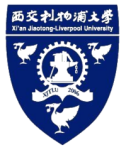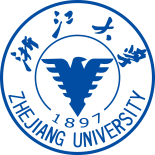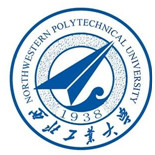 Invited
Speakers
Invited
Speakers

Assoc. Prof. Tao Sun
Shenzhen Institute of Advanced Technology, Chinese Academy of
Sciences, China
Tao SUN is currently an Associate Professor at the Paul C. Lauterbur Research Center for Biomedical Imaging, Shenzhen Institutes of Advanced Technology, Chinese Academy of Sciences. He is a Category B awardee of the Chinese Academy of Sciences Talent Program and a Category C Overseas High-Level Talent of Shenzhen. His honors include the SNMMI “Ones to Watch” Young Investigator Award, nomination for the EANM Sanjiv Sam Gambhir Young Investigator Award, the First Prize of Henan Provincial Science and Technology Progress Award. His research focuses on PET/CT and PET/MR imaging methodologies, with particular emphasis on quantitative optimization of total-body PET and multi-organ functional modeling. He has served as principal investigator or key contributor on six competitive research projects funded by national, provincial, and municipal agencies, including the National Key R&D Program of China and the Guangdong Regional Joint Fund. In quantitative PET analysis and computer-aided diagnosis, he has published 30 SCI-indexed papers as first or corresponding author in leading journals such as IEEE Transactions on Medical Imaging, European Journal of Nuclear Medicine and Molecular Imaging, and NeuroImage. He currently serves as Associate Editor of Physical and Engineering Sciences in Medicine.

Dr. Xing Gao
Beijing Academy of Science and Technology, China
Xing Gao received her PhD from the School of Biomedical Science and Medical Engineering at Beihang University. Since 2010, She has been working at the Beijing Academy of Science and Technology as a researcher, specializing in the study of elderly behavioral safety and the risk of falls. She has authored 51 papers, among which 2 are SCI-indexed as the first author, 8 are EI-indexed, and 5 are CSCD. She has participated in the formulation of 6 national standards, obtained 7 invention patents, 11 utility model patents, obtained 2 product certifications, and obtained 23 software copyrights.
Speech Title: "The Current Situation and Prospects of Biomedical Technology in the Field of Smart Elderly Care"
Abstract: Aging has become a global trend. In China, the problems of "premature aging before wealth accumulation" and "premature aging before preparations" are more prominent. Utilizing emerging technological means to assist in elderly care might be one of the feasible solutions to the elderly care issues in our country. At the same time, biomedical technology is profoundly reshaping intelligent elderly care, with its application scenarios shifting from the use of single products to building a new ecosystem of "technology + aging". Currently, technologies such as precise prediction, rehabilitation robots, and non-invasive health monitoring are gradually integrating into elderly care services, improving the quality of life of the elderly to a certain extent. Looking ahead, driven by policies and market demands, technology will place greater emphasis on cross-industry integration, personalization, and inclusiveness, building a comprehensive intelligent health security system covering the entire life cycle.
Previous Invited Speakers

Dr. Autiero Ida
Institute of Biostructures and Bioimaging, Italy
Dr. Autiero is Research Scientist at The National Research Council (CNR) Institute of biostructure and bioimaging in Naples (Italy), form the 2022. Her research area lies in between computational methods applied to biologically relevant systems and structural investigations of small molecules, proteins, nucleic acids and drug/target complexes using approaches of structural biology, molecular modeling, theoretical simulations, molecular dynamics and interaction studies. Autiero’s ongoing projects mainly concern the in-silico modeling, structural and dynamic characterization of RNAs based molecules for the rational development of new therapeutics as well as the understanding of the molecular basis of diseases. From November 2023 she is Principal Investigator of a Research Projects of National Interest PRIN project: RNA Aptamer development for epigenetic control in neuropathic pain with specific delivery system: from theoretical to in vivo studies. Autiero has established several scientific collaborations with both Italian and foreign academies, as Xi'an Jiaotong Liverpool University, Universita' degli studi di napoli, Federico II, Università degli studi della Campania Luigi Vanvitelli, PolitoBIOMed Lab-Biomedical Engineering Lab, Turin and University of Bologna. She worked for international companies as senior scientist from the 2017 to 2022 and spent a short-term mobility program in November 2023 at the laboratory of Dr. Annalisa Di Ruscio (DiRuscio lab) at the Beth Israel Deaconess-Medical Center (BIDMC), Harvard Medical.
Speech Title: "RNA Aptamer Development for Epigenetic Control in Neuropathic Pain"
Abstract: RNA aptamers are single-stranded molecules showing very high affinity and selectivity towards diverse targets, whose flexibility hampers the experimental characterization. We design RNA aptamers to bind DNMT3a with theoretical approaches inspired by a recent in-silico platform successfully used to characterize the structural determinants of DNA methyltransferase 1 (DNMT1) RNA binders. DNMTs are epigenetic enzymes regulating gene expression crucial for several diseases as neuropathic pain (NP), which is evidently correlated with the abnormal function of DNMT3a. We use molecular modeling and simulations to depict the interaction mode of physiological RNA regulators of DNMT3a to finally guide the computational design of novel RNA sequences. The efficacy of our candidates will be further validated and optimized with experimental in vitro binding assays in cellular lines and animal models, to confirm the inhibition of methylase activity and the efficacy of selected aptamer candidates to act in the NP. This project represents a validation of the theoretical platform to provide a solid base for the extension of our strategy to new RNA aptamers, to further target other members of DNMTs family and to obtain a generalized computational/experimental platform for the development of RNA based therapeutics.

Assoc. Prof. Francesco Zonta
Xi’an Jiaotong Liverpool University, China
Francesco Zonta obtained his Ph.D. in Physics in Padova University (Italy) in 2007. He initiated his career in Computational Biology as Post-Doc and young researcher at the Venetian Institute of Molecular Medicine, working on models of connexin hemichannel permeation. In 2015 he joined the Shanghai Institute for Advanced Immunochemical Studies (ShanghaiTech University) as director of the Bioinformatics platform and Co-PI of the laboratory of Computational Biology, working on computer simulations of antibody-antigen interactions. From 2023 he is Associate Professor in the Department of Biological Sciences of Xi’an Jiaotong Liverpool University. He authored more than 50 articles in peer-reviewed international journals in the fields of computational biology, molecular biology, and statistical mechanics.
Speech Title: "Advancing Peptide Simulations with a Neural Network Energy Function"
Abstract: Traditional molecular simulations rely on physics-based force fields to model biomolecular interactions. While effective in many cases, these approaches struggle with highly flexible molecules such as peptides, where local conformational fluctuations and dynamic properties are crucial. We have developed a Neural Network Energy Function (NNEF) that learns biomolecular energy landscapes directly from experimental structural data, circumventing the limitations of predefined functional forms. In our initial work, NNEF demonstrated success in protein model assessment, decoy discrimination, and sequence design. Here, we extend this approach to peptide dynamics, a critical step toward broadening its applicability. Unlike proteins with well-defined tertiary structures, peptides exhibit rapid structural changes, necessitating a model that accurately represents their energy landscapes. To achieve this, we integrate additional data sources, including NMR-derived torsion angles and chemical shifts, refining the NNEF to better reflect peptide behavior. We compare our results with standard atomistic (CHARMM36) and coarse-grained (Sirah) simulations to evaluate accuracy and computational efficiency. By bridging machine learning with experimental validation, our study aims to establish NNEF as a viable alternative to traditional force fields, improving peptide modeling for applications in molecular biology and drug design. The implications of this work extend beyond peptides, potentially enabling more accurate simulations of intrinsically disordered proteins and other flexible biomolecules.

Dr Jack Jennings
Sheffield University, UK
Dr. Jack Jennings obtained a Masters degree in Astrophysics from the University of Leeds (2018). He then furthered his academic career by obtaining a PhD in Computational Cryobiology at Newcastle University (UK) in 2022. Dr Jennings then joined the Fletcher lab at the University of Sheffield (UK) in 2022, supervised by Prof Alexander G Fletcher. Dr Jennings now primarily works in the field of developmental biology with a focus on understanding tissue morphogenesis and pattern formation through computational simulations.
Speech Title: "Modelling and Quantifying Patterns in Living Tissues"
Abstract: The patterning of multicellular tissues relies on self-organisation, which emerges from dynamic, iterative interactions from the molecular to tissue scale. Molecular interactions, for instance through reaction-diffusion networks, result in symmetry breaking and cell polarisation. Short-range interactions between cells locally coordinate cell polarity and long-range biochemical and mechanical controls coordinate patterning across tissues. Thus, not only are interactions occurring on different length-scales but also on different time-scales. Consequently, understanding the biochemical and biophysical mechanisms underlying tissue self-organisation is a formidable challenge. To address this, we have extended the standard vertex model through the inclusion of coupled biochemical reaction-diffusion systems at cellular junctions and mechanical feedback to simulate self-organised patterning from junctions to tissue scale. As an example for tissue patterning we study the ‘core’ planar polarity pathway function in the developing Drosophila wing. Here we present two of our findings related to the patterning of the Drosophila wing during morphogenesis. First, the impact and range of clones on autonomous polarisation in the Drosophila wing and its implications for the core planar polarity complex. Second, the importance of mechanosensitive E-cadherin in regulating tissue viscoelasticity and cell shape during hinge contraction and its impact on polarity.

Asst. Prof. Faez Iqbal Khan
Xi'an Jiaotong-Liverpool University, China
Dr. Faez Iqbal Khan is currently serving as an Assistant Professor within the Department of Biological Sciences at Xian Jiaotong-Liverpool University. He holds a Ph.D. degree in Computational Chemistry (Bioinformatics) from Durban University of Technology, South Africa. Dr. Khan has obtained Bachelors and Master’s Degrees in Biomedical Science and Bioinformatics, respectively. Throughout his career, Dr. Khan has conducted research and teaching across esteemed institutions such as Rhodes University (South Africa), South China University of Technology, and the University of Electronic Science and Technology of China. His main areas of research focus on Protein engineering, Protein folding, drug design, and Protein dynamics. Dr. Khan established wide-ranging collaborations with BRICS countries and mentored several postgraduate students. He has authored over 80 publications in international peer-reviewed journals, which are well cited.
Speech Title: "AI-Driven Protein Modeling and PyMOL in Transnational Biology Education"
Abstract: This study explores the integration of the AI-powered tool AlphaFold with PyMOL to predict protein structures and enhance pedagogical methodologies in transnational biology education. Employing an action research framework, innovative teaching strategies are designed to improve student engagement and learning outcomes through AI-driven protein modeling. The findings illustrate the effectiveness of these approaches in enhancing student motivation, conceptual understanding, and digital literacy. Additionally, the study examines ethical considerations surrounding the adoption of molecular visualization tools in higher education. Survey responses highlight the critical role of visualization tools such as PyMOL in facilitating protein structure studies. This research underscores the significance of strategically designing and implementing AI-enhanced learning activities with PyMOL, fostering active student interaction with complex biological concepts.

Prof. Y-h. Taguchi
Chuo University, Japan
Y-h. Taguchi is a distinguished professor at the Department of Physics, Chuo University, Japan, where he specializes in applying cutting-edge methodologies like single-cell-based measurements to drug repositioning and genomic science. He earned his Bachelor of Science (B.S.) and Ph.D. degrees in physics from the Tokyo Institute of Technology in Tokyo, Japan. His scholarly contributions have been recognized and published in leading scientific journals, including Physical Review Letters, Bioinformatics, and Scientific Reports. Professor Taguchi is known for his development of a computational technique termed 'tensor decomposition-based unsupervised feature extraction'. This innovative approach has been successfully utilized for in silico phenotype-based drug discovery, particularly in repurposing known drugs for combating severe acute respiratory syndrome coronavirus 2 (SARS-CoV-2).

Prof. Jianbo Pan
Chongqing Medical University, China
Dr. Jianbo Pan is a Professor of bioinformatics at Chongqing Medical University. He received a bachelor’s degree in Chemical biology (2009) and a Ph.D. in bioinformatics (2014) from Xiamen University, and conducted a 6-year postdoctoral research supervised by Dr. Jiang Qian and Dr. Hui Zhang at Johns Hopkins University School of Medicine. Since 2020, as a PI, he set up Intelligent Bioinformatics Research Group (InBiRG) in Chongqing Medical University. Dr. Pan's current research involves bioinformatics and multi-omics integration, especially in the field of pan-disease bioinformatics analysis. As first/corresponding author, he has published 25 peer-reviewed papers in reputable journals such as Cell, Nature Communications, Nucleic Acids Research, Cell Reports, and Briefings in bioinformatics.

Assoc. Prof. Weiwei Xue
Chongqing University, China
Dr. Weiwei Xue is an Associate Professor of Pharmaceutical Sciences at Chongqing University. He received a bachelor’s degree in Chemistry (2006) and a Ph.D. in Cheminformatics (2014) from Lanzhou University. He worked as a visiting scholar in the Institute for Protein Design (IPD) at the University of Washington (2018-2019). The research in Dr. Xue’s Lab is focused on constructing and maintaining disease- and therapeutic-related bioinformatics databases and tools, and developing artificial intelligence and molecular modeling methods to design innovative small molecules or protein binders against molecular targets of complex diseases, including psychiatric disorders, viral infection, and cancer. He has published more than 90 peer-reviewed papers in the area of bioinformatics and computational drug design (https://scholar.google.com/citations?user=nnY4O4QAAAAJ). He is also an editorial board member of Computers in Biology and Medicine.

Assoc. Prof. Shweta Gupta
Woxsen University, India
Dr. Shweta Gupta is Associate Professor at Woxsen University, India. She has 22 years of Experience of both in Multinational Companies Like Patni Computers, Tech Mahindra, Reliance Infocomm, and Colleges in and around Delhi – NCR. She is a Senior member of HKCBEES. She was awarded a Certificate of Merit for Outstanding academic performance and being among the top 0.1 percent of successful candidates of C.B.S.E. in XII standard. She was sent as a Senior Scientist under the International Travel Support Scheme by the Science and Engineering Research Board (SERB Department) was sent to ICBBT2015, Singapore for a Research Paper Presentation. She is doing her post-doc on “Early Prediction of Epilepsy using Genetic Algorithm and Ph.D. in Electronics and Communication" Neurostimulators used in Brain for “Treatment of Parkinson's Disease and Epilepsy using Bionics" and has done her Executive Global Business Management Programme from I.I.M. Lucknow and M.S. from Bits Pilani and B.E. in Electronics and Communication Engineering from Pune University. She is Editor in IGI Global's “Bio-Inspired Algorithms and Devices for Cognitive Diseases using Future Technologies" and Editor in Taylor and Francis’s “Cognitive Predictive Maintenance Tools in Brain Diseases: Design and Analysis".

Prof. Feng Zhu
Zhejiang University, China
Dr. Feng Zhu is Distinguished Professor of Zhejiang University, China and Tenured Full Professor of Zhejiang University, China. He is Associate Editor of Journal of Chemical Information and Modeling, President of Intelligent Pharmaceutical Sciences Society and Bioinformatics Society of Zhejiang. He is the Secretary-General of Computational Chemistry and Chinese Chemical Society. He has published more than 170 research papers in reputable journals such as Nature Biotechnology, Nature Protocols, Nature Machine Intelligence, Nucleic Acids Research, PNAS, and Nature Reviews Drug Discovery. For more information, please visit the official website of his lab at: https://idrblab.org/Peoples-PI.php.

Prof. Feng Guan
Northwest University, China
Dr. Feng Guan is a professor in the College of Life Sciences at Northwest University. He received his Ph.D. in Microbiology from China Agriculture University. After completing his Ph.D. he went to University of Washington, Seattle, as a postdoc supervised by Dr. Sen-itiroh Hakomori. In 2011, he moved back to China, and got a full professor position in Jiangnan University, China. And in 2017, he translocated to Northwest University, Xi'an. Dr. Guan's current research involves integrating omics techniques to identify dysregulated glycan chains during tumor development and progression, and investigating the role of these glycan chains in cell adhesion, growth, and apoptosis.

Prof. Yi Wang
Southwest University, China
Prof. Yi Wang currently is a professor and doctoral supervisor at the Biological Science Research Center, Southwest University. He received his bachelor's and doctoral degrees from Zhejiang University and Chongqing University, respectively, and conducted postdoctoral research at the University of California, Davis and Berkeley. His research interests include genomics, single-cell omics, and artificial intelligence. Professor Wang has led multiple national and provincial-level research projects and has published over 40 high-quality papers with a total citation count exceeding 3,300. His work has been recognized as highly cited papers in the ESI. He also serves as an editorial board member and reviewer for several international journals, and is an Associate Editor of iMeta journal.

Ms. Lei Zhang
Research Scientist in Bioinformatics and Omics Data at China
National GeneBank DataBase, China
Lei Zhang received her B.S degree in computer science and M.S. degree in Biochemistry and Molecular Biology from HUST (Huazhong University of Science and Technology). She severed as project manager for Signal Transduction and Transcriptome Engineering in China-UK HUST-RRes Genetic Engineering and Genomics Joint Laboratory, executive director of Tivoli Education Technical Support in IBM GPSG RDC(Wuhan)(as internee). She joined CNGBdb as a research scientist in data curation and mining. Broad project experience in whole genome sequencing analysis of Model plants and animals, Genome-Wide Association Studies about Individuals and Groups, metagenome analysis of microbiome, rare disease associated SNPs detection and Pharmacogenomics research. She has published several academic papers and conference reports in scientific research, owns a number of invention patents. Current interests include biological big data mining, integration, management and sharing, aiming to provide all-in-one data service integrated data processing, data archiving, data online analysis and data application in Life Sciences.

Prof. Leyi Wei
Shandong University
Prof. Leyi Wei is currently a full Professor at School of Software, Shandong University, China. His research interests include bioinformatics and artificial intelligence. He has published 100+ peer-reviewed papers, receiving 4000+ citations in Google Scholar with h-index=40. His work has been recognized through the reception of awards, including Highly Cited Researcher" in Cross-Field (Released by Clarivate Analytics, 2021), ACM SIGBIO Rising Star Award (2021), and many others. He is now serving as Associate Editor and the Editorial Board member for a number of well-known journals, such as Frontiers in Genetics, Methods, BMC Genomics, and Current Bioinformatics, etc.

Assoc. Prof. Shirley Weng In Siu
University of Saint Joseph
Shirley Weng In Siu is an Associate Professor at the University of Saint Joseph. She received her PhD in Natural Sciences from Saarland University (Germany) in 2010. Between 2012 and 2021, she was Assistant Professor in the Department of Computer and Information Sciences at the University of Macau and the head of the Computational Biology and Bioinformatics Laboratory. Her research focuses on computational drug discovery, biomolecular simulation, cheminformatics and machine learning. She pioneers the application of swarm intelligence and machine learning to solve problems in protein ligand docking, drug target identification, and prediction of biological activity and toxicity. She is interested in finding new chemical and biological agents with pharmaceutical potential. Shirley also has great interest in the biophysics of proteins, membranes and polymers. Using molecular dynamics simulations, she has studied the conformational dynamics and mode of action of peptides that are antimicrobial, anticancer, and neurotoxic. She has been involved in the development of membrane lipid force fields and more recently in the modelling of self-assembling monolayers on biochips. Shirley is the author/co-author of more than 60 peer-reviewed journal and conference papers.
 Important Dates
Important Dates10 Mar., 2026
Paper Acceptance Notification:
30 Mar., 2026
Paper Registration Deadline:
10 Apr., 2026
Conference Date: 22-25 May, 2026
 Indexed By
Indexed By


 Sponsored by
Sponsored by

 Patrons
Patrons 



















